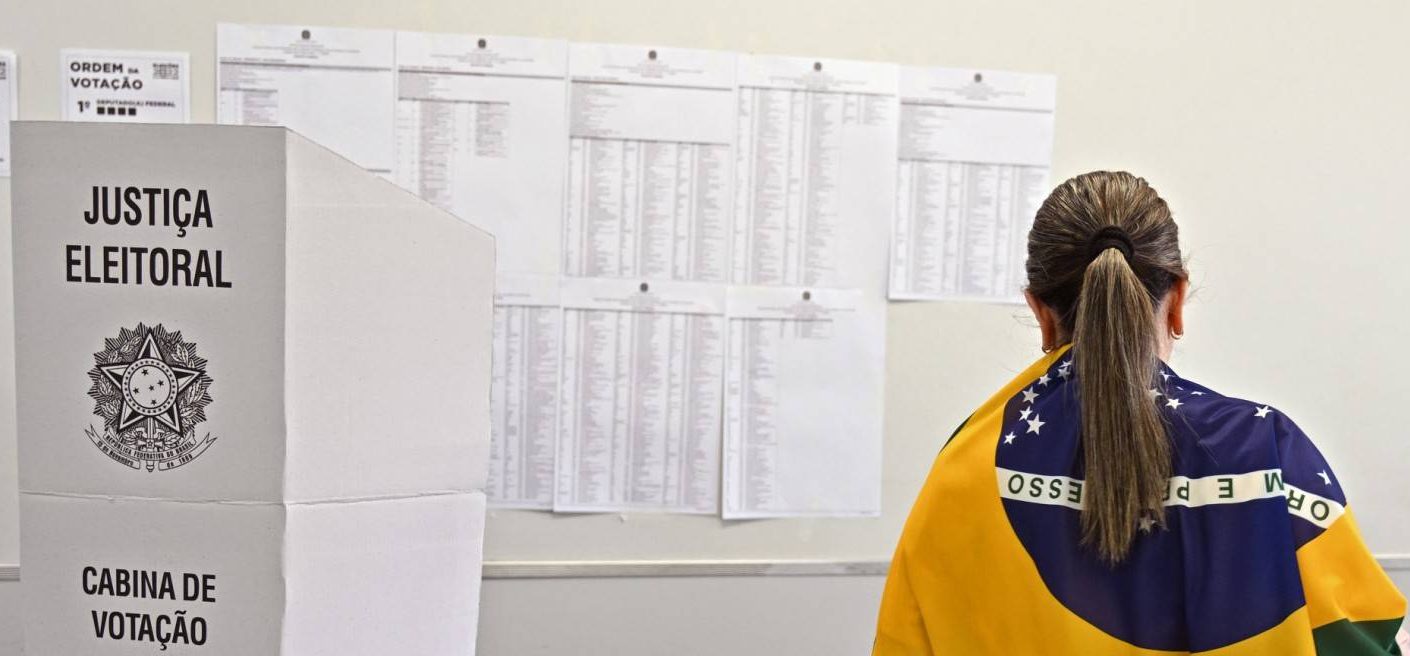
Polls opened at 8:00 am (1100 GMT) for eight hours of balloting with an early trickle of voters dutifully decked out in the red colors of Lula’s Workers’ Party, or the green-and-yellow of Brazil’s national flag that Bolsonaro has claimed as his own.
“I’m a Christian, I only vote for candidates who are for what’s in the Bible, so I’m voting for Bolsonaro,” housewife Aldeyze dos Santos, 40, told AFP in Brasilia, the capital.
In Rio de Janeiro, retired psychologist Katia Ferrari, 67, said: “I hate Bolsonaro.”

“In Lula’s time, things were much better, no matter if he stole… everyone steals,” she said in an allusion to Lula’s controversial graft conviction, later overturned.
The campaign has left the Latin American giant deeply divided, with former president Lula (2003-2010) leading ex-army captain Bolsonaro with 50 percent of valid votes to 36 percent, according to a final poll from the Datafolha institute released Saturday evening.
The figures put Lula within arm’s reach of the score needed to win outright and avoid a runoff on October 30: half the valid votes, plus one.
Bolsonaro, known for his combative style, has repeatedly said “only God” can remove him from office, attacked supposed fraud in Brazil’s electronic voting system, and vowed his re-election bid can have just three outcomes: “prison, death or victory.”
Lula, the charismatic but tarnished ex-president seeking to stage a comeback at 76, has said he fears the incumbent will create “turmoil” if he loses — a concern heard often in Brazil heading into election day.
Bolsonaro’s attacks on the voting system have raised fears of a Brazilian version of the riots that erupted at the US Capitol last year after his political role model, former president Donald Trump, refused to accept his election loss.
Trump gave Bolsonaro his resounding endorsement, calling him a “fantastic leader” and “one of the great presidents of any country in the world” in a video posted on social media.
Public Security Minister Anderson Torres sought to downplay fears of unrest, saying more than 500,000 security-force members had been deployed.
“We’re having an election, not a war,” he said.
Political analyst Adriano Laureno said it is likely Bolsonaro will try to contest the result if he loses.
“But that doesn’t mean he’ll succeed,” added Laureno, of consulting firm Prospectiva.
“The international community will recognize the result quickly… There might be some kind of turmoil and uncertainty around the transition, but there’s no risk of a democratic rupture.”
– Heavyweight bout –
Lula, the ex-metalworker who rose from destitute poverty to become the most popular president in Brazilian history, is seeking to stage a return four years after falling spectacularly from grace and spending 18 months in jail on controversial corruption charges.
Accused in a massive graft scheme centered on state-run oil company Petrobras, Lula regained the right to run for office last year when the Supreme Court annulled his convictions, ruling the lead judge in the case was biased.
In the meantime, Bolsonaro, 67, who swept to office on a wave of anti-establishment outrage in 2018, has lost much of his outsider shine.
Vowing to defend “God, country, and family,” the president retains the die-hard backing of his “Bibles, bullets, and beef” base — Evangelical Christians, security hardliners, and the powerful agribusiness sector.
But he has lost moderate voters with his management of the weak economy, his vitriolic attacks on Congress, the courts, and the press, a surge in destruction in the Amazon rainforest, and his failure to contain the devastation of Covid-19, which has claimed more than 685,000 lives in Brazil.
Many voters are deeply disillusioned with both contenders — and the lack of other options — in a race where none of the other nine candidates managed to break out of single digits in the polls.
Brazil’s 156 million voters are also electing the lower house of Congress, one-third of the Senate, and governors and state legislators in all 27 states.



